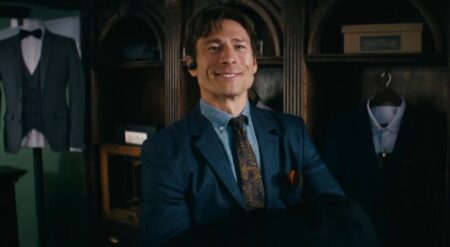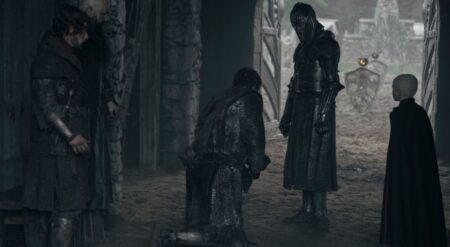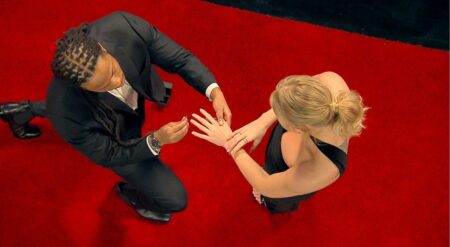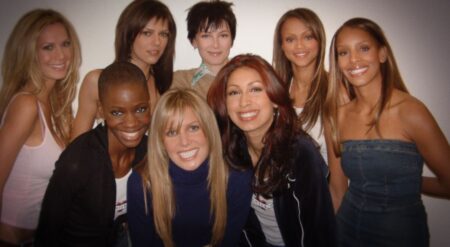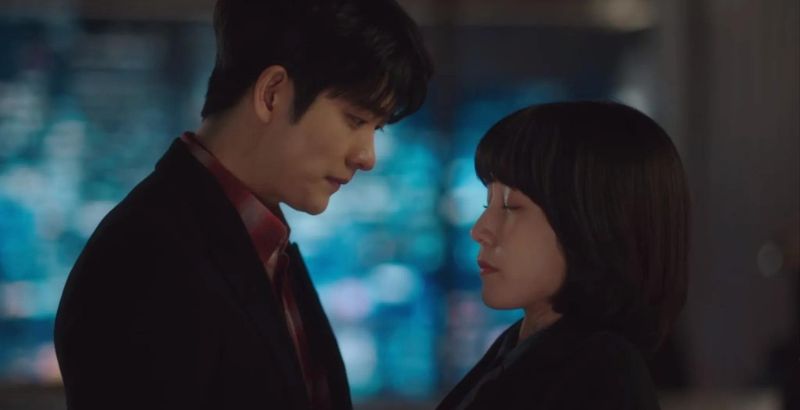
Content Warning: Extraordinary Attorney Woo Episode 9-10 deal with issues of sexual assault.
Extraordinary Attorney Woo is a Korean legal drama series streaming on Netflix. With Young Woo deciding to continue to practice law at Hanbada, the skilled attorney now faces a pair of cases that asks hard questions about how society approaches those least able to speak for themselves. While in the background of her court life, Young Woo and Joon Ho take their first steps towards having a relationship.
The first in this pair of cases involve a man who stands accused of kidnapping a bus full of children. While the fact that the man committed the crime is open and shut, the circumstances surrounding his motives make this case an engaging story.
The defendant in Extraordinary Attorney Woo Episode 9-10‘s first case calls himself the Commander in Chief of the Children’s Liberation Army. He claims that he wishes to liberate children from the abuse and mistreatment that school, teachers, and even their parents subject them to. As the episode reveals the defendant’s actions and the reasons for why he does what he does, the viewer cannot help but come to sympathize with his intentions, even if his actions fall well short of acceptable.
While the first of this week’s cases had an uplifting and positive aspect to its courtroom proceedings, Extraordinary Attorney Woo Episode 9-10‘s second case is a harder watch as a man stands accused of sexually assaulting a mentally disabled woman.
This case is far less cut and dry as so much of what determines the accused innocence or guilt are things that cannot be factually proven. Whether or not the alleged victim can consent to the acts that took place is of key importance. But throughout the episode, some moments would suggest one way, and other moments would contradict them.
What makes the situation even more complex is the obvious external forces at play that muddy the waters. The mother of the alleged victim does not doubt what has happened and is exerting pressure for the outcome she has concluded must be the truth. These factors serve to further obfuscate that truth.
These questions surrounding the level of understanding and control those with mental disabilities have over their emotions and interactions with others come at the worst possible time for Woo. As her long-simmering interest in Joon Ho finally starts going somewhere, the episode’s major issues understandably weigh on Woo’s mind.
But while many may have concerns about their newly budding romance, one person who doesn’t share them is Joon Ho. From the first time he helped Woo get through the rotating door in the pilot episode, the man has been nothing but wonderful and respectful of Woo and Extraordinary Attorney Woo Episode 9-10 only increase the man’s stock.
What truly sells the couple is how honest their interactions are. Joon Ho is fully aware that being involved with someone like Young Woo will not be easy. Her repeated abrupt flights from him when she becomes nervous around him is proof enough of that. But it seems like he is entering this situation with the healthiest perspective he can. And woe to any who questions his intentions or Woo’s worthiness of them.
When all is said and done, Extraordinary Attorney Woo Episode 9-10 delivers a pair of incredibly crafted stories that present complex issues with varying overriding tones. While the first has a more fundamentally playful element to its look at society, the second is nothing but uncomfortable and hard looks at how the larger world looks at, treats, and judges those with mental disabilities.
Extraordinary Attorney Woo Seaon 1 is streaming exclusively on Netflix.
Extraordinary Attorney Woo Episodes 9-10
-
Rating - 9/109/10
TL;DR
When all is said and done, Extraordinary Attorney Woo Episode 9-10 deliver a pair of incredibly crafted stories that present complex issues with varying overriding tones. While the first has a more fundamentally playful element to its look at society, the second is nothing but uncomfortable and hard looks at how the larger world looks at, treats, and judges those with mental disabilities.

